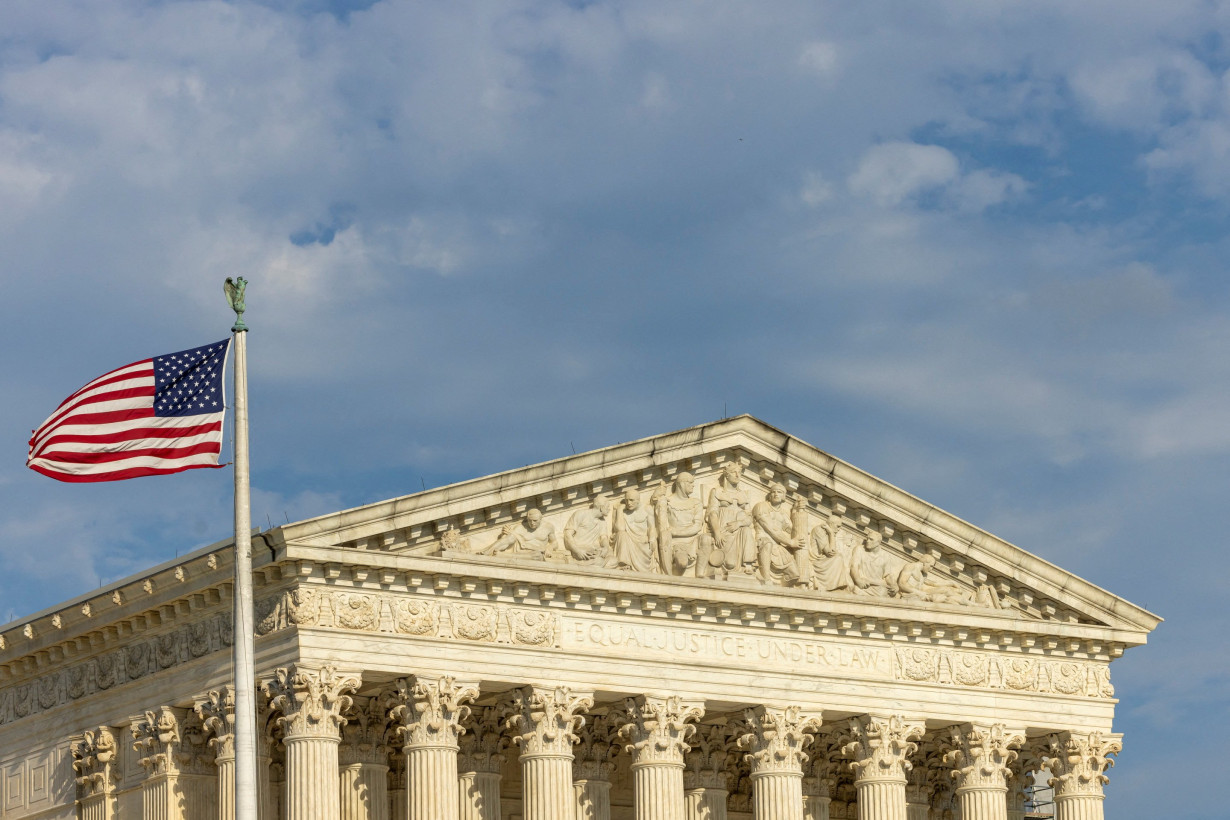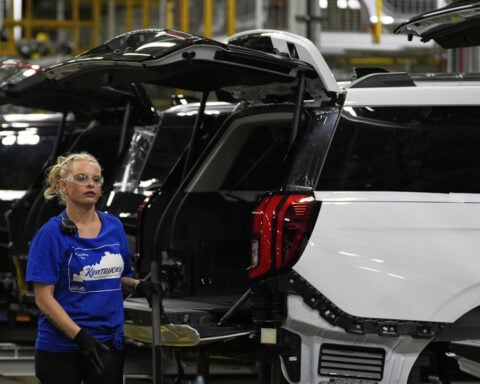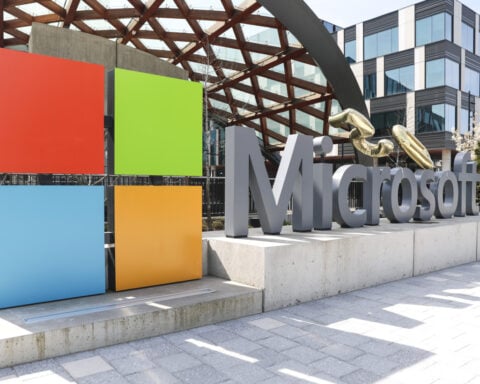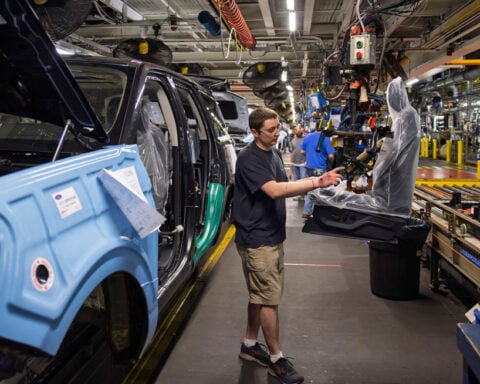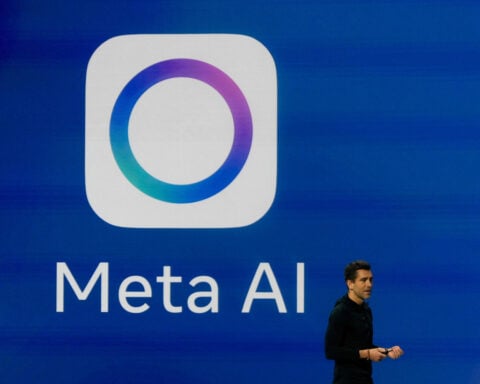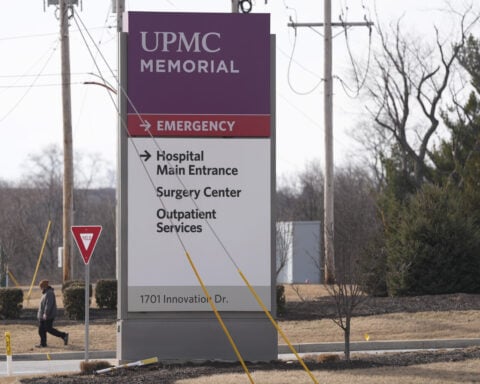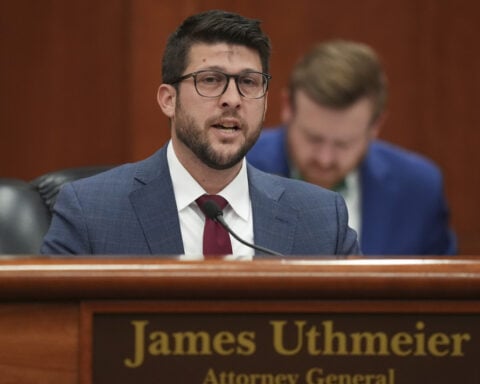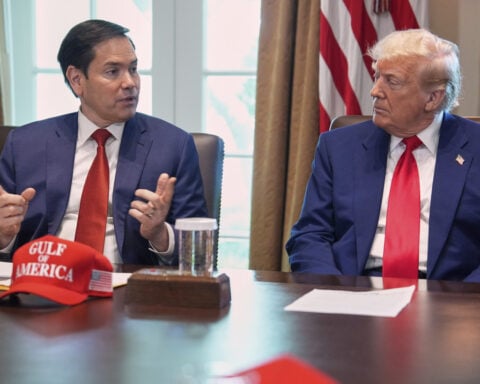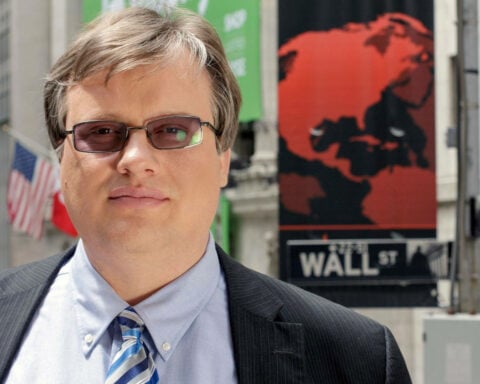By John Kruzel and Andrew Chung
WASHINGTON (Reuters) - The U.S. Supreme Court appeared sympathetic on Monday toward a bid by an arm of a Catholic diocese in Wisconsin for a religious exemption from the state's unemployment insurance tax in the latest religious rights case to reach the justices.
They heard arguments in an appeal by the Catholic Charities Bureau - a nonprofit corporation operating as the social ministry arm of the Catholic diocese in the city of Superior - and four entities that the bureau oversees of a lower court's decision rejecting their tax exemption bid.
At issue was whether Wisconsin's denial of the tax exemption violated the U.S. Constitution's First Amendment guarantee of free exercise of religion, as well as its separation of church and state. Under Wisconsin's unemployment insurance program, the state collects taxes from employers and uses the revenue to provide a temporary source of income to eligible jobless workers.
Lawyer Eric Rassbach, arguing for the Catholic Charities Bureau, urged the justices to embrace a "generous approach to exemptions, not a stingy one." A lawyer for President Donald Trump's administration also argued in support of the challengers.
Wisconsin Assistant Attorney General Colin Roth told the justices that expanding the exemption as the plaintiffs seek could threaten jobless benefits for numerous currently covered employees nationwide who work for religiously affiliated employers.
"It would leave potentially over one million employees nationwide without unemployment coverage, like nurses and janitors at religiously affiliated hospitals," Roth said.
The federal government and all states exempt certain religious entities from having to pay into unemployment insurance programs. Most of these laws, including Wisconsin's, require that organizations be "operated primarily for religious purposes" to be eligible for a religious exemption.
The Wisconsin Supreme Court in 2024 rejected the tax exemption bid by Catholic Charities Bureau and its subsidiaries. Although the groups "assert a religious motivation behind their work," that court found, their activities were "primarily charitable and secular" and thus were not "operated primarily for religious purposes."
The Catholic Charities Bureau since 1917, it said on its website, has provided "services to the poor, the disadvantaged, the disabled, the elderly and children with special needs as an expression of the social ministry of the Catholic Church in the Diocese of Superior."
'A FUNDAMENTAL PREMISE'
Roth said Wisconsin's law is meant to prevent state officials who are handling unemployment disputes from having to involve the government in questions of religious doctrine. Some of the justices pressed Roth on whether that policy would benefit religious denominations and groups that proselytize and seek to inculcate their religion over those that do not.
"Isn't it a fundamental premise of our First Amendment that the state shouldn't be picking and choosing between religions?" asked conservative Justice Neil Gorsuch.
"I thought it was pretty fundamental that we don't treat some religions better than other religions, and we certainly don't do it based on the content of the religious doctrine that those religions preach," liberal Justice Elena Kagan told Roth.
The Catholic Charities Bureau and its subsidiaries do not require their employees to be of any particular religion, nor do they seek to instill Catholic beliefs in those receiving their services. Among the subsidiary groups involved in the case are organizations that provide services to people with disabilities including job placements and training, as well as daily living services and home visitation, according to court papers.
During the Great Depression, Wisconsin in 1932 became the first U.S. state to enact an unemployment compensation law.
Three years later, Democratic U.S. President Franklin Roosevelt signed into law the landmark Social Security Act of 1935 that established, among other programs, a cooperative federal-state unemployment insurance plan that would eventually lead to all U.S. states enacting their own unemployment relief programs.
Some of the justices raised questions about the consequences of expanding the exemption, including whether a vegetarian restaurant owned by a religiously affiliated employer that does not believe in eating meat would get an exemption, and how the law would apply to religiously affiliated hospitals.
"There are lots of hard questions in this area - vegan restaurants, hospitals - lots of hard questions," Kagan said.
A ruling in the case is expected by the end of June.
The Supreme Court, with its 6-3 conservative majority, has taken an expansive view of religious rights in a series of rulings in recent years. The court on April 30 is due to hear another case involving Catholic interests in a bid led by two Catholic dioceses to establish in Oklahoma the nation's first taxpayer-funded religious charter school in a case testing the separation of church and state.
(Reporting by John Kruzel; Editing by Will Dunham)

 Trump has begun another trade war. Here's a timeline of how we got here
Trump has begun another trade war. Here's a timeline of how we got here
 Canada's leader laments lost friendship with US in town that sheltered stranded Americans after 9/11
Canada's leader laments lost friendship with US in town that sheltered stranded Americans after 9/11
 Chinese EV giant BYD's fourth-quarter profit leaps 73%
Chinese EV giant BYD's fourth-quarter profit leaps 73%
 You're an American in another land? Prepare to talk about the why and how of Trump 2.0
You're an American in another land? Prepare to talk about the why and how of Trump 2.0
 Chalk talk: Star power, top teams and No. 5 seeds headline the women's March Madness Sweet 16
Chalk talk: Star power, top teams and No. 5 seeds headline the women's March Madness Sweet 16
 Purdue returns to Sweet 16 with 76-62 win over McNeese in March Madness
Purdue returns to Sweet 16 with 76-62 win over McNeese in March Madness
